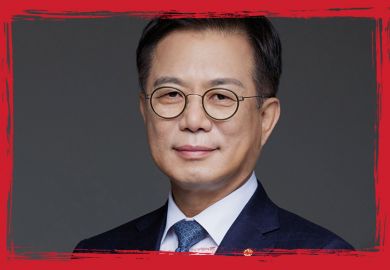The story of endemic institutional abuse – and pervasive cover-ups masked as “ignorance” – is not new. It is embedded in institutions that have been established by the privileged elite. Underpinning the success of these institutions is power and control: the desire either to acquire or maintain it.
The feudal dynamics are the same in the academy as they are in Hollywood: the steep power differentials between junior and senior academics are similar to those between “up-and-coming” actors and established movie leads, directors and producers. In both contexts, the power to advance a career is too frequently abused.
Successive generations have not seen fit to make fundamental changes to such inequalities. Yet, increasingly, we are seeing the human costs of such structures. Our response can no longer be to expect victims and survivors to address this abuse. Rather, we need to dramatically re-evaluate these structures and dismantle the power, privilege and entitlement that contribute to such violence.
Academic staff who have harassed or assaulted other staff or their students have been protected because of the huge incentive for universities to retain people who can bring in significant research income and, in the UK, a successful result in the research excellence framework. But what decision-makers within higher education must consider in assessing institutional risk, reputational damage and duty of care is not so much financial as human capital.
One particular feature of the academic world involves new researchers moving from one temporary contract to the next, heavily dependent upon strong references from respected figures. Most fields have their leading lights, but there are those among them who quietly and abusively dim the career prospects of those seeking their help to progress.
The media – including social media users – are often in awe of such figures’ “brands”, sometimes referring to them as academic “rock stars”. Such talk contributes to what is increasingly referred to as “toxic masculinity”. And the more we protect such people or claim ignorance of their abuses, the more we institutionalise such abuses, increasing the probability of their recurrence.
Today, Harvey Weinstein and Kevin Spacey are in the news. So, in the UK, are many members of Parliament, some of them very senior. Tomorrow, it could be that eminent professor we have all heard about and knowingly referred to as a “character”.
And while the issue is not new, the response can be. In Hollywood, the abusers are being stripped of their positions and their accolades. If the criminal proceedings launched against some of them are successful, they might ultimately be deprived of their liberty too. And this has given rise to an environment in which other “characters” are finally at serious risk of exposure.
The higher education sector can and should provide a lead in educating and developing society through research and good practice. But before we can do that, we need to take the opportunity offered by the Weinstein scandal to get our own house in order. This may well mean some universities dismissing some of their most academically eminent staff – and not through quiet transfer and the hidden protection of non-disclosure agreements, as we’ve seen in the past with sexual harassment allegations. We need to embrace accountability and transparency – before it is imposed on us by media revelations. Who is up to the challenge?
Graham Towl is professor of forensic psychology and was the pro vice-chancellor chair of the Sexual Violence Task Force at Durham University during 2015/2016. He was formerly chief psychologist at the Ministry of Justice. Kelsey Paske is an Athena SWAN Charter advisor and a specialist in the prevention of violence against women. She was previously senior manager for violence prevention and support at La Trobe University, Australia. They each speak in a personal capacity.
Register to continue
Why register?
- Registration is free and only takes a moment
- Once registered, you can read 3 articles a month
- Sign up for our newsletter
Subscribe
Or subscribe for unlimited access to:
- Unlimited access to news, views, insights & reviews
- Digital editions
- Digital access to THE’s university and college rankings analysis
Already registered or a current subscriber? Login







